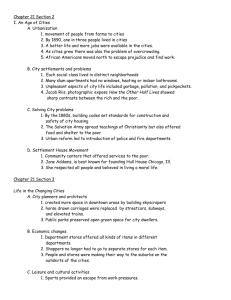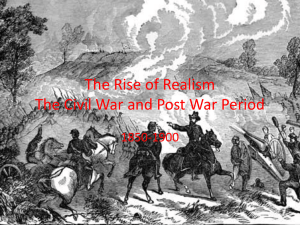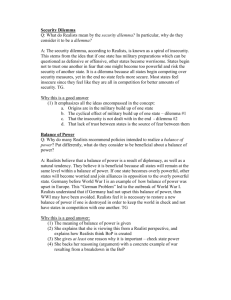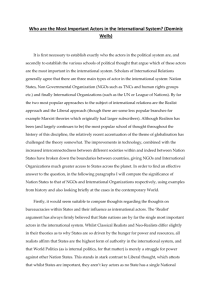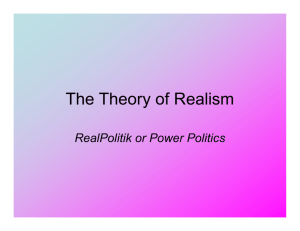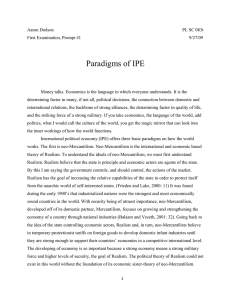Realism in International Relations: Core Principles
advertisement
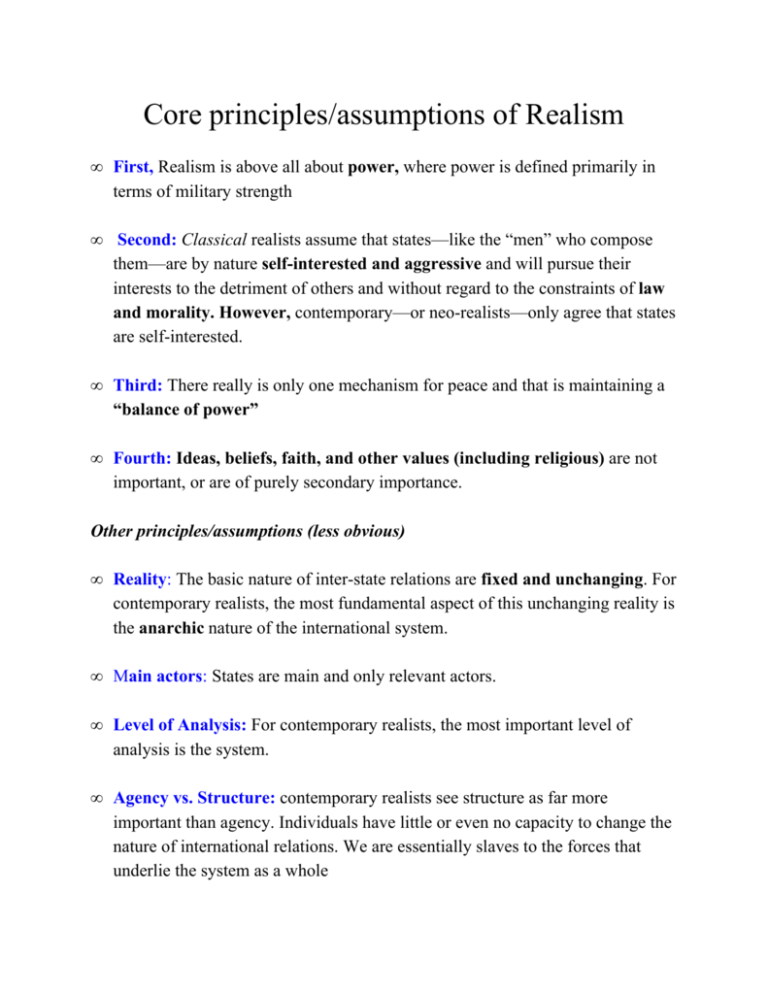
Core principles/assumptions of Realism • First, Realism is above all about power, where power is defined primarily in terms of military strength • Second: Classical realists assume that states—like the “men” who compose them—are by nature self-interested and aggressive and will pursue their interests to the detriment of others and without regard to the constraints of law and morality. However, contemporary—or neo-realists—only agree that states are self-interested. • Third: There really is only one mechanism for peace and that is maintaining a “balance of power” • Fourth: Ideas, beliefs, faith, and other values (including religious) are not important, or are of purely secondary importance. Other principles/assumptions (less obvious) • Reality: The basic nature of inter-state relations are fixed and unchanging. For contemporary realists, the most fundamental aspect of this unchanging reality is the anarchic nature of the international system. • Main actors: States are main and only relevant actors. • Level of Analysis: For contemporary realists, the most important level of analysis is the system. • Agency vs. Structure: contemporary realists see structure as far more important than agency. Individuals have little or even no capacity to change the nature of international relations. We are essentially slaves to the forces that underlie the system as a whole
